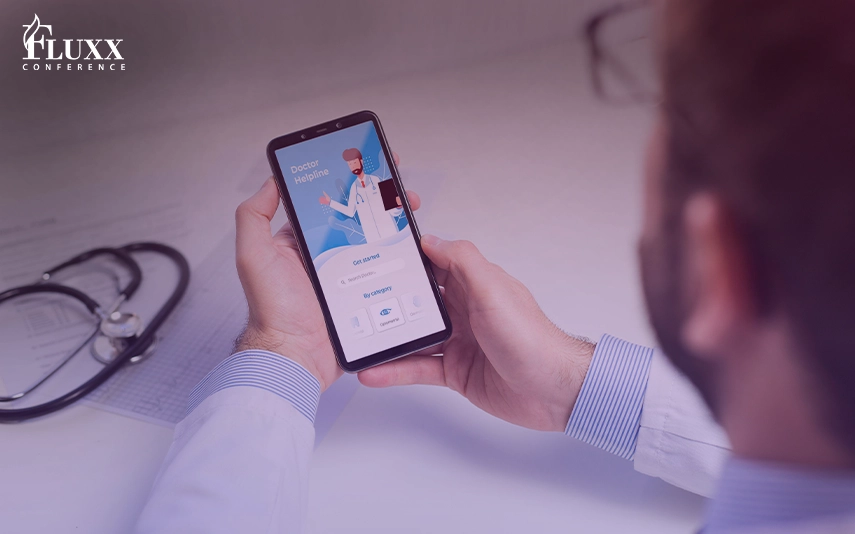
Could Your Smartphone Diagnose Diseases Before Symptoms Emerge?
Imagine your phone telling you that you’re sick before you even are. Sounds like a crazy sci-fi action flick, right? But thanks to advances in mobile health technology, it might be your reality in the not-too-distant future. Consider a future in which your smartphone serves as your own personal physician—watching your health quietly in the background, diagnosing issues before they become serious, and reminding you to act early on.
Mobile health technology is not all about fitness trackers tallying your steps or apps beeping at you to drink water. We’re discussing smartphones becoming toolboxes for powerful diagnostic capabilities that have the potential to revolutionize healthcare entirely.
So, let’s discuss how this is occurring, what it all means for you, and why healthcare technology conference experts are abuzz with this future.
The Smartphone: Your New Health Detective
The phone in your pocket is filled with sensors and features once exclusive to hospitals. Heart rate sensors, accelerometers, gyroscopes, cameras, and microphones—these small devices within your device gather an abundance of health-related information on a daily basis.
What’s new? Artificial intelligence (AI) and machine learning. These technologies scan the vast amounts of data your phone gathers, looking for patterns or anomalies that might suggest an underlying health problem.
For instance, there are applications today that employ your phone’s microphone to scan your voice for indicators of respiratory disease or neurological conditions. Just as easily, your phone’s camera will be able to analyze your skin for rare moles or monitor your heart rate variability simply by examining subtle shifts in facial color—things no human could readily notice.
Early Detection: Why it’s a Game-Changer
Early disease detection can save lives and reduce healthcare costs dramatically. Usually, by the time symptoms show up, a disease may have already progressed, making treatment more complicated, expensive, and stressful.
With mobile health tech, your phone becomes a frontline defender, monitoring you 24/7 and catching warning signs that might otherwise slip through the cracks.
Take heart disease, for example—one of the biggest killers worldwide. Irregular heartbeats or other problems affect many without their realizing it. A smartphone app interfaced with wearable devices might catch these irregularities in an early stage, encouraging you to get medical help before a heart attack or stroke occurs.
But What About Privacy and Accuracy?
With all this information whizzing around, it makes sense to wonder: “Is my medical information secure? Can I believe these apps?”
Developers are working overtime to design safe platforms that preserve user privacy and meet regulatory requirements such as HIPAA. Clinical validation is also important—any device or application that says it can detect disease must be able to validate its reliability through demanding testing.
It’s a delicate act—empowering users with great capabilities without overhyped promises or unwarranted fear-mongering. And yet, with responsible innovation, this technology can democratize access to health, particularly for those in distant or underserved communities who can’t afford easy access to a doctor.
What’s Next? The Future Is Already Here
The future of healthcare will be mobile, personalized, and predictive. Consider your phone whispering into your ear: “Hey, your resting heart rate has been elevated the past few days. Want me to book an appointment with the cardiologist?”
This type of proactive health tracking will be normal, not an exception. And it’s not just for consumer users—hospitals and clinics can utilize crowd-sourced mobile health data to identify outbreaks or monitor population health patterns.
The thrilling aspect? These discussions are taking place at Fluxx Health Care Technology Conferences in Qatar, where the smartest minds in medicine and technology are scheming the next bounds. Be it AI, wearable sensors, or 5G, the aim is the same: harness mobile phones to detect disease early, save lives, and enable individuals to be in charge of their health.
Wrapping It Up
Your cell phone has already altered how you work, communicate, and play. It may soon transform how you remain healthy and safe—by diagnosing diseases before you experience a single symptom.
Though there is still a long way to go, mobile health technology’s fast development and eager endorsement by leaders at Fluxx Healthcare Leadership Conferences 2025 indicate that such a future is well within reach.
Therefore, the next time you glancingly check your phone, keep in mind: it could be the sharpest health companion you have ever had.
However, if you want to remain ahead of these trends register yourself now at Fluxx Conference
— we are where the future of health comes alive.
Interesting Reads:
Bioeconomy on the Rise: Merging Healthcare Innovation & Strategy
Why Cross-Functional Collaboration is the Future of Healthcare?





Comments (3)
Открыть счет в binance January,07 2026
Can you be more specific about the content of your article? After reading it, I still have some doubts. Hope you can help me. https://www.binance.com/es-MX/register?ref=GJY4VW8W
注册Binance February,06 2026
Your article helped me a lot, is there any more related content? Thanks!
binance skapa konto February,07 2026
Can you be more specific about the content of your article? After reading it, I still have some doubts. Hope you can help me.